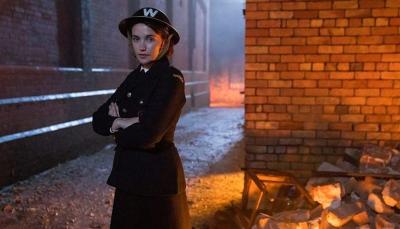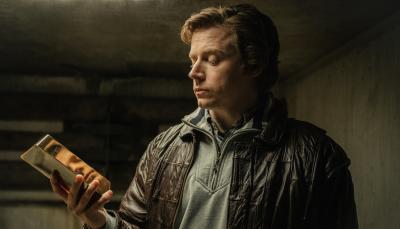Netflix’s 'Churchill’s Secret Agents' is a ripping World War II yarn
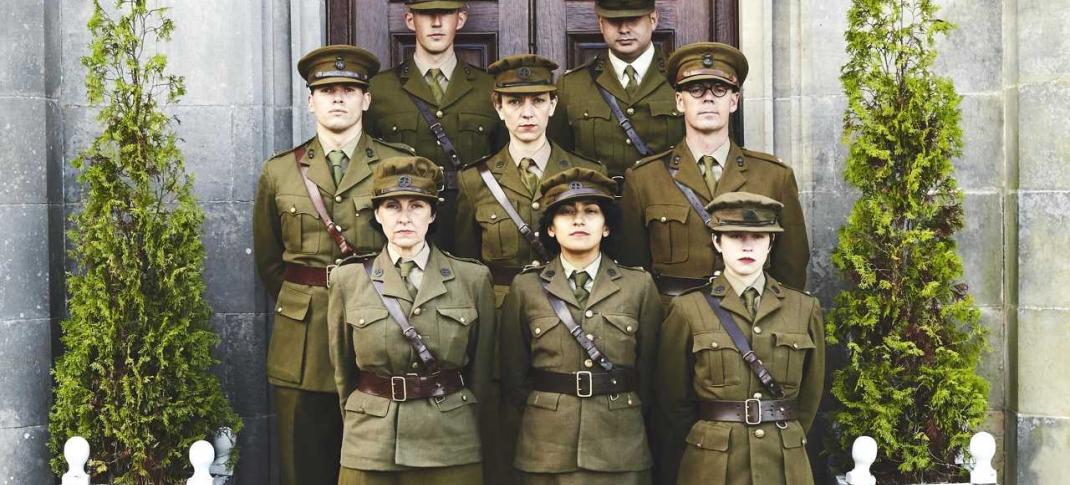
Every bone in my body aches, I nearly drowned, I crawled under barbed wire, I had three migraines, and you know what? It’s been one of the best experiences of my life. I’ve absolutely loved it.
--Paul Stone, entertainer
Netflix’s five-part documentary series, Churchill’s Secret Agents, was originally presented by the BBC in 2017 as Secret Agent Selection: WW2. Its creation was inspired by the declassification of the training techniques of the Special Operations Executive (SOE) a force of specially trained agents to work abroad with resistance groups created by Winston Churchill, in the dark days of 1940.
Drawing from both the civilian population and the military, by the end of the war, 9,000 agents were trained and sent into the field - many of whom did not return - whose work shortened the war by six months. It was a daring and unorthodox move - Churchill described the SOE as “The Ministry of Ungentlemanly Warfare,” and its techniques were based on those used by the Irish Republican Army.
The program trained recruits to be assassins and saboteurs, and the decent chaps in the Royal Air Force initially thought dropping agents behind enemy lines was unethical. The Royal Navy had its scruples too, and although the problem of getting agents to occupied Europe was not resolved until the next year, training began.
The series brilliantly uses contemporary footage as commentary and clarification of the simulated experiences, seamlessly narrated by a familiar voice, that of Douglas Henshall (Jimmy Perez in Shetland).
In the 21st century, do ordinary people have the unique talents that SOE recruiters were looking for? A diverse cast of fourteen recruits was chosen, which included women, people of color, and a man with a disability. Their professions crossed class lines. Predictably, two of them are interpreters, one of whom, Magda Thomas, is the grand-niece of a Warsaw resistance fighter. Another recruit has a French grandfather who served in the Maquis. They also need to be physically fit, have mechanical aptitude, be able to think on their feet, learn skills fast, and lie through their teeth. It’s not quite the Dirty Dozen, but close.
The group also includes two former soldiers, a teacher (who annoyingly is also frequently referred to as “drama teacher and grandma.” Oh please. But who blends in better than a woman of a certain age? Churchill would certainly have approved), a doctor, a retired financial advisor, a veteran police officer, a scientist--all smart, physically fit people whose mettle will be tested and whose weaknesses will be challenged.
And, gasp--no one seems particularly bothered about not having a cell phone, internet, and so on. They’re in remote Scotland in another world and time, complete with authentic clothes and hairstyles. During training, one woman refuses to crawl under barbed wire because it would mess up her hair, and those surprisingly fussy hairstyles of the 1940s don’t last long. Neither do recruits who can’t tough out bad hair or worse. Because since this is a reality show, anyone can be banished at any time, even resorting to the technique of asking participants who they would throw off the island. Yet there’s no meanness and very little over-the-top emotion, although the sudden departures are unsettling for those remaining, as are the non-stop testing, observation, and unpleasant surprises, throughout the series.
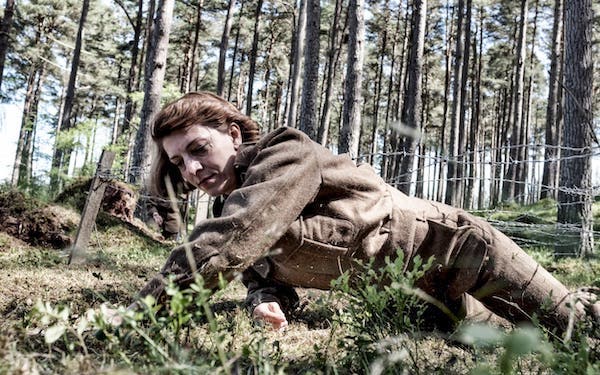
“I am quite comfortable with the idea of striking other people”
--Lizzie Jeffreys, research scientist
Lizzie, small, blonde, and with a deceptively harmless appearance, is one of two candidates who successfully scales a ten-foot wall during a fitness course (the other being ex-paratrooper Rob Copsey, who has a prosthetic leg). She later admits to being able to kill if necessary. She abandons her vegetarianism for the duration of the course.
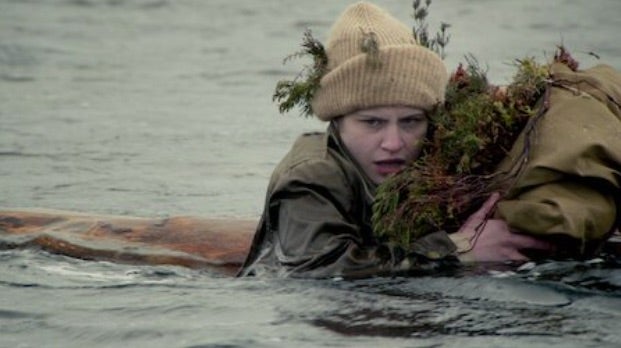
Debbey Clitheroe, drama teacher (and, since it’s apparently obligatory, grandma) overcomes her fear of open water in a swim across a dangerously cold loch. She’s another vegetarian who finds the exploding rat exercise extremely unpleasant; a favorite of resistance fighters, you place explosives in an eviscerated dead rat. This leads to one of the best lines of the series from an instructor:
Sixty more seconds then and I’ll be inspecting your rats.
Other recruits dramatically overcome their fear of heights--there is a rope exercise and a terrifying ascent of a sheer cliff, using rusty iron ladders in use over sixty years before; you’ll find yourself holding your breath as they make a sideways transition to the next ladder on the route. Modern regulations require the use of safety harnesses, but it’s still scary to watch. Sami Ali, an army veteran, says it’s the worst thing he’s experienced since Afghanistan.
Naturally, weapons training and self-defense, or gutter fighting, as it’s called, is of paramount importance. This is hard for some--Rohini Bajaj is a doctor accustomed to saving lives, but she turns out to be a star of weapons training despite her distaste. Corporate trainer Dan Dewhirst, however, reveals his inner cowboy and is repeatedly rebuked for mishandling his weapon. He doesn’t last--he’s considered temperamentally unsuited for SOE, despite his leadership qualities and initiative.
The recruits have to learn Morse code and how to assemble and operate a radio. This was one of the most dangerous occupations in the field, with an average lifespan of six weeks. Once a radio signal was detected by the Nazis, the operator had thirty minutes to send and receive information before they were discovered. They learn to pick locks and handcuffs, using bicycle spokes and hairpins, how to create a cover story, and survive an interrogation. Even though the interrogations do not involve physical force, the recruits are blindfolded and find facing a barrage of questions from someone in a Nazi uniform intimidating.
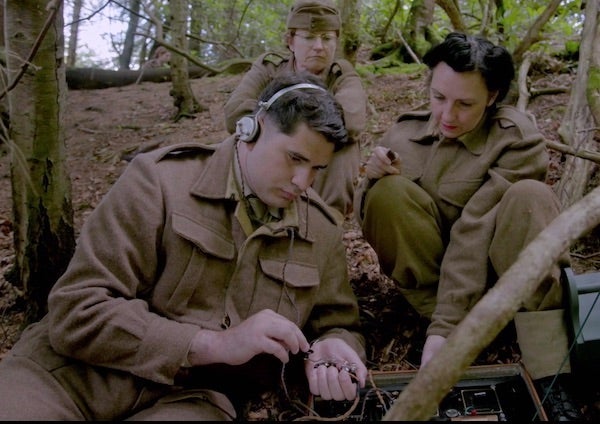
The last episode presents the recruits with a final test using all the techniques and tricks they’ve learned, simulating the build-up to D-Day. Their involvement is such that they feel the pressure, as they have done all along, in this isolated little world. There are some extraordinarily moving moments--Magda weeps while listening to the BBC’s radio report of the fall of Poland; and when she reads her great-aunt’s farewell letter to the family before her execution I don’t think there’s a dry eye there (including mine). As another recruit sums up:
Everything we’ve done, the truth behind it, it really put an extra amount of pressure on our shoulders, I think, to try and respect the people who’d gone before us.
--Alastair Stanley, math graduate
But it’s a reality show. Is everyone best friends forever? And what happens after they’ve returned to the twenty-first century? In true stiff upper lip fashion, there was not much emotional openness; they were far too busy, for one thing, and while teamwork was emphasized, these were very personal stories. As much as I wanted to see something similar to the Great British Baking Show’s followups on contestants, those cheery friendships and baking visits, what on earth could they be? Meeting in a park to pretend to blow something up? Sending a radio message from a dark corner of the pub? Perhaps having discovered that they can do extraordinary tasks way beyond their comfort zones is reward enough.
Have you watched the series? What did you think?


